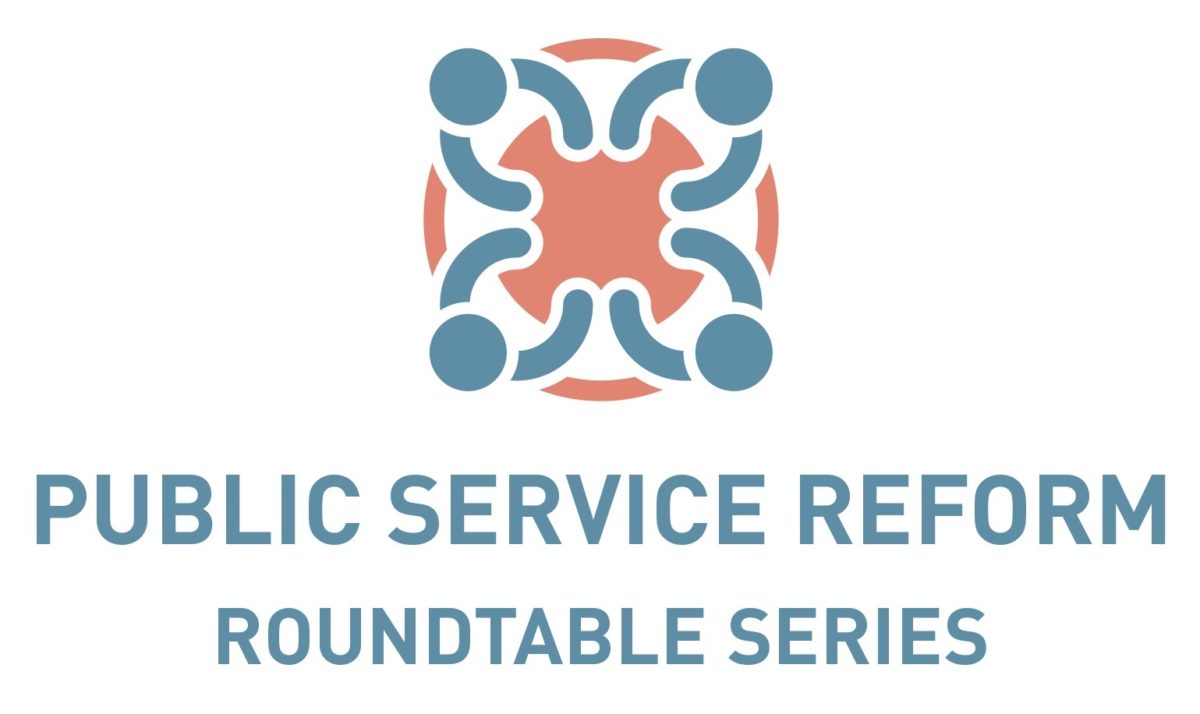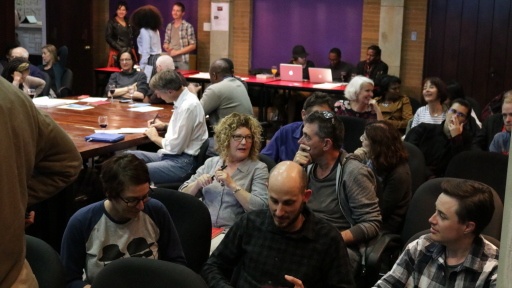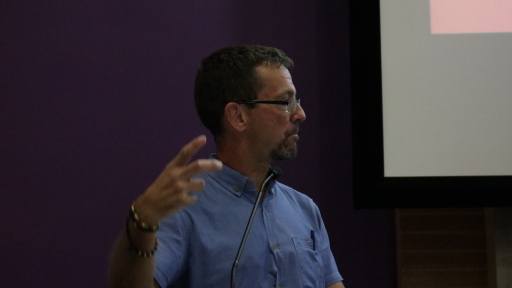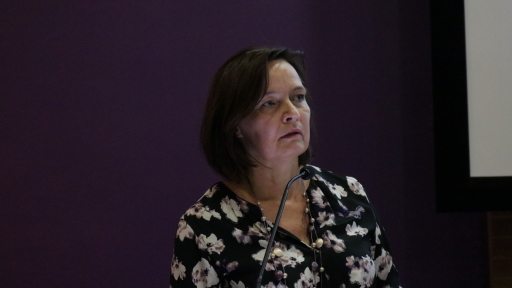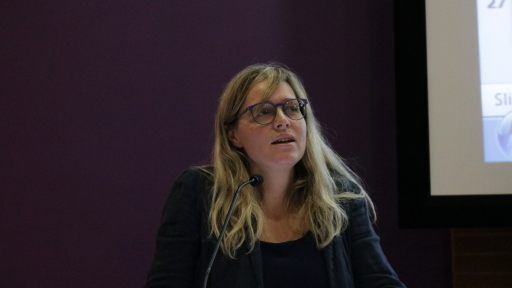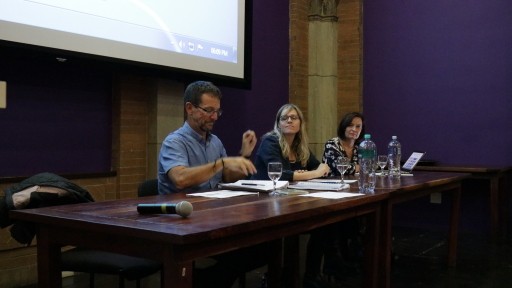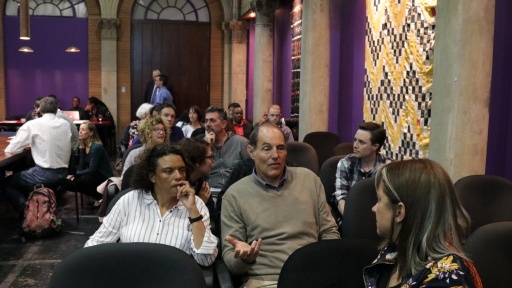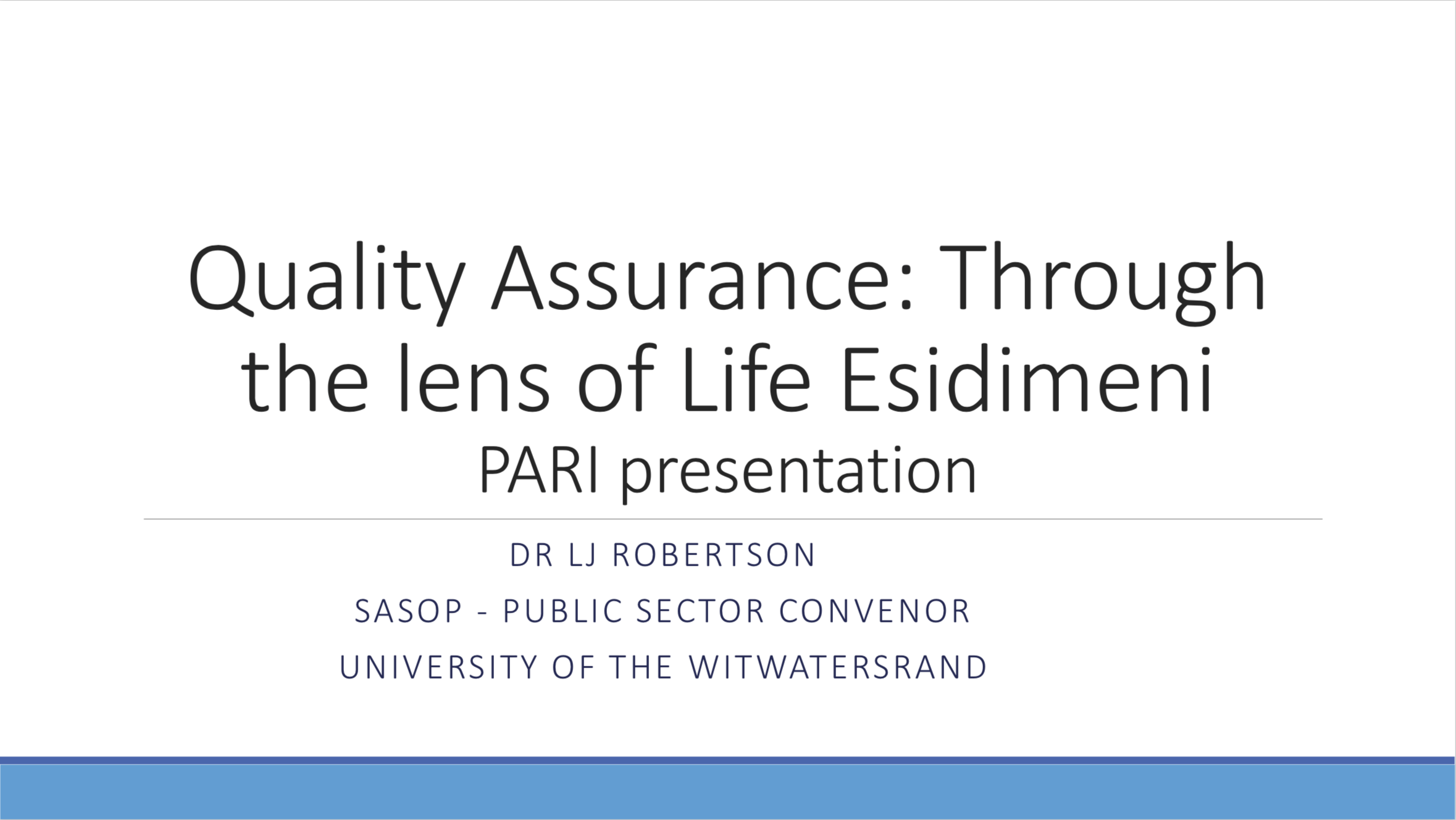As part of the #AfterCapture campaign, PARI in May held a Public Service Reform Roundtable. This second-in-the-series discussion was to investigate one of the deadly side-effects of state capture in South Africa – the Life Esidimeni tragedy in which 144 people died after being transferred to ‘spaza-shop NGOs’.
Called Through the Lens of Life Esidimeni, the panel featured Section27 Executive Director Mark Heywood, community psychiatrist Dr. Lesley Robertson and PARI’s associate researcher, Sarah Meny-Gibert.
Heywood said there had to be justice for the people who died. He called for charges to be laid against the public servants and the political head of the Gauteng Department of Health who failed them. The officials and the political head had begun to act like rulers rather than servants, he told the gathering at Wits University. The Life Esidimeni tragedy is far from over, warned Heywood, who said that it offered many lessons because it had ended impunity in health.
These included:
- the power of civil society
- the importance of organising families into a structure and force
- the Democratic Alliance’s Jack Bloom who deserved credit for bringing out information by using his position in the Gauteng legislature
- the lessons of arbitration as a form of justice over litigation
Heywood said that Judge Dikgang Moseneke’s arbitration award in the Life Esidimeni hearing should be made required reading – he likened it to a document as important as the Constitution.
Another lesson from the tragedy was that it revealed the chaos of accountability distribution between national and provincial government, and at the heart of the failures was the collapse of the Gauteng Department of Health. Heywood spotlighted how the logic of the Gauteng Department of Health had changed. Officials encouraged establishing and expanding small NGO’s to be able to respond to tenders to care for the mentally ill patients, when they were completely unable to do so.
Heywood proposed that creating a layer of ‘spaza-shop NGOs’ into which the Life Esidimeni patients were discharged was an exercise in patronage and an effort by the ANC to build political loyalty. The former head of the Gauteng Health Department who had been implicated in tenderpreneur allegations, Brian Hlongwa, was implicated in this phase too, said Heywood, who said that a Special Investigating Unit report into the Life Esidimeni deaths had come to light after former President Jacob Zuma sat on it for months. Section27’s work has revealed that the greatest state capture is happening in provincial health and education budgets and the consequences of capture are felt here.
Dr. Lesley Robertson, who had treated patients who were then transferred, set out what people with mental illness are entitled to at each level of state care according to legislation and policy, and then demonstrated how these entitled are failed at every step. She said that while the programme of taking people out of institutions to return them into their communities is a progressive and good policy, it depends completely on the provision of community-based care appropriate to the severity of the illness. It failed dismally in the Life Esidimeni scandal as this did not exist. Robertson told the gathering that while patients transferred to the specialist psychiatric hospitals were significantly more likely to survive,this came at 5 times the cost of Life Esidimeni care and 12 times that at NGOs due largely to the additional professional staffing of these institutions.
The mortality ratio of patients discharged from Life Esidimeni centres into the NGO’s was exceptionally high, she said, adding that mentally ill people are the most vulnerable of the vulnerable and require additional care
PARI is undertaking a year-long series on what the challenges are of the era of what it calls #AfterCapture – what are the changes to the state needed to ensure an independent public service and a democratic and constitutional state. It will culminate in an international conference later on 22, 23 and 24 October, 2018 in Johannesburg.
See Mark Heywood and Lesley Robertson’s full presentations below.
NEXT UP:
Professionalising Public Procurement
12 June 2018, 17h30, Humanities Graduate Centre, Wits University
with Kenneth Brown, former Chief Procurement Officer, National Treasury


